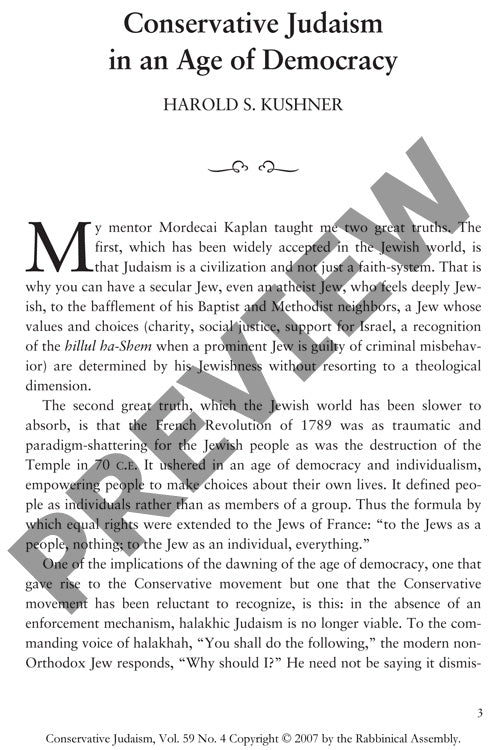Conservative Judaism in an Age of Democr
Couldn't load pickup availability
The French Revolution of 1789 challenged Judaism as profoundly as the Temple's destruction in 70 C.E., ushering in an age of individualism that fundamentally undermines traditional halakhic authority. Conservative Judaism now faces an existential choice: adapt its theological foundations or risk irrelevance in modern democratic society. Drawing on Mordecai Kaplan's teachings, qualitative analysis reveals three distinct patterns of religious decision-making among Conservative Jews: love-based observance, strategic compliance, and Kantian free choice - with the latter representing the majority. Even the most committed practitioners no longer function within a truly halakhic framework, instead choosing observances based on personal values rather than obligation. A post-halakhic theological framework centered on "asher kidshanu b'mitzvotav" offers a viable path forward, reframing traditional practices like kashrut, Sabbath observance, and prayer as opportunities for achieving holiness rather than divine commandments. Conservative Judaism must abandon its halakhic self-identification and embrace a holiness-centered paradigm that respects individual autonomy while maintaining communal Jewish identity, paralleling the movement's historical reinvention of Judaism after the Temple's destruction.

More Information
-
Physical Description
-
Publication Information
Published 2007
ISBN
-
Publication Credits
Harold Kushner

